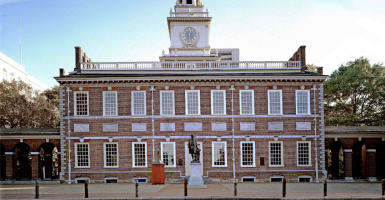Those who drafted the Constitution and subsequent amendments labored over every word that would be included in our charter of liberty. But today some clauses have limited application and others have been swept under the rug entirely. Have you ever heard of the Contract Clause, the Coinage Clause, or the Origination Clause? The Pacific Legal Foundation is trying to make the latter a household name with its new challenge to the Affordable Care Act.
Another constitutional provision that is all but meaningless today is the Privileges or Immunities Clause in the 14th Amendment, which provides that “No state shall make or enforce any law which shall abridge the privileges or immunities of citizens of the United States.” Since its ratification, this language has invited multiple interpretations. Some read it to empower courts to enforce previously unrecognized rights. Others limit it to a narrow category of rights, such as those found in the Bill of Rights, which courts cannot enlarge.
In 1873, five years after ratification of the 14th Amendment, the Supreme Court read the clause quite narrowly, limiting it to a small category of rights. In the Slaughter-House Cases, butchers (among others) challenged Louisiana’s public health regulation that granted a semi-monopoly of the slaughterhouse industry in New Orleans to one company. The law permitted any butcher to come to that location and pay to use the facilities, but it forbade any butcher to maintain his own slaughterhouse.
The challengers argued this violated their right to earn a living under the 14th Amendment. The Supreme Court held that the Privileges or Immunities Clause could not grant them relief because it protected only rights “which owe their existence to the Federal government, its National character, its Constitution, or its laws.” This included rights such as visiting the seat of government in Washington, D.C., access to courts and seaports, and protection of the federal government “when on the high seas or within the jurisdiction of a foreign government.” It did not, however, protect a citizen “against the legislative power of his own State” with regard to earning a living, because such rights were traditionally “left to the State governments for security and protection.”
For more than a century after the Slaughter-House Cases, how the Privileges or Immunities Clause should be read was of little interest to lawyers or academics. Except for one case which was quickly overturned, the Privileges or Immunities Clause laid dormant until 1999, when the Supreme Court held in Saenz v. Roe that the clause protected a right to travel that included the ability of citizens to move freely between states. The Saenz Court found that this right to travel encompassed a right of equal access to government welfare benefits for new state residents.
In 2010, Justice Clarence Thomas signaled he might be willing to revive the clause. In McDonald v. City of Chicago, the Supreme Court struck down a Chicago gun regulation, holding that the right to keep and bear arms is “fully applicable to the States” by way of the 14th Amendment’s Due Process Clause. In a concurring opinion, Justice Thomas wrote that the Privileges or Immunities Clause protected the right to bear arms against state infringement, not the Due Process Clause.
This concurrence helped spur considerable debate among constitutional scholars over the clause’s proper interpretation. Many are re-examining whether the Court was correct about the scope of the Privileges or Immunities Clause in the Slaughter-House Cases. Some call for the Court to resuscitate the clause to protect fundamental rights. Others fear reviving it would open the door to the judicial creation of new enforceable rights, such as free college tuition or a guaranteed annual income.
Does the clause authorize the courts to create new constitutional rights not elsewhere specified in the text of the Constitution? Is it limited to the narrow category of rights recognized in the Slaughter-House Cases? Should the Court reconsider the Slaughter-House Cases? Does Congress have a role to play – that is, can Congress identify “privileges and immunities” that the courts must protect?
Join us at the Heritage Foundation on Oct. 30 at noon for a debate between Michigan Supreme Court Justice Stephen Markman and Georgetown Law Professor Randy Barnett, two distinguished constitutional law scholars, over the original meaning of the Privileges or Immunities Clause. The program also will be streamed on our website.






























